More than 200 educators worldwide participated in the 1st International Virtual Conference on the Teaching of Filipino as a Second Language (IVCTFSL 2021), held recently via Zoom.
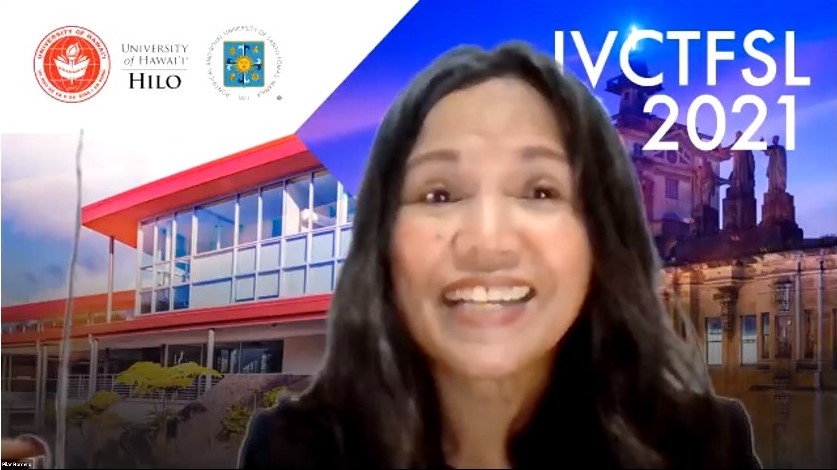
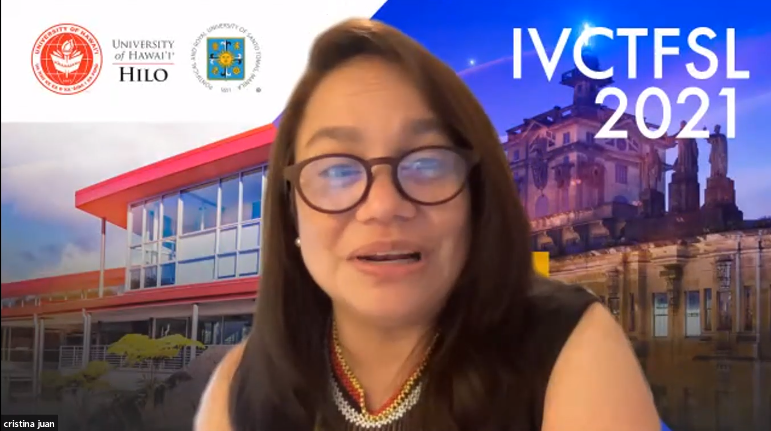
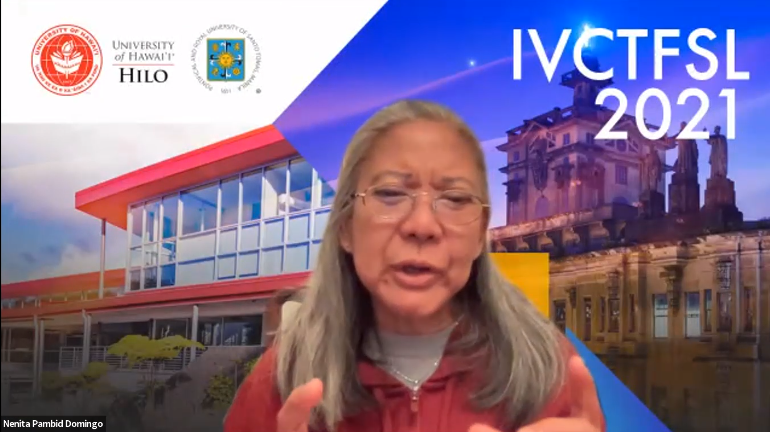
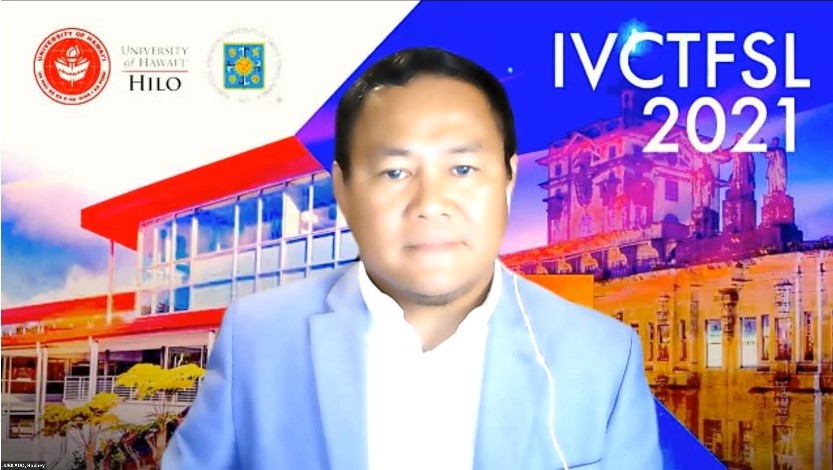
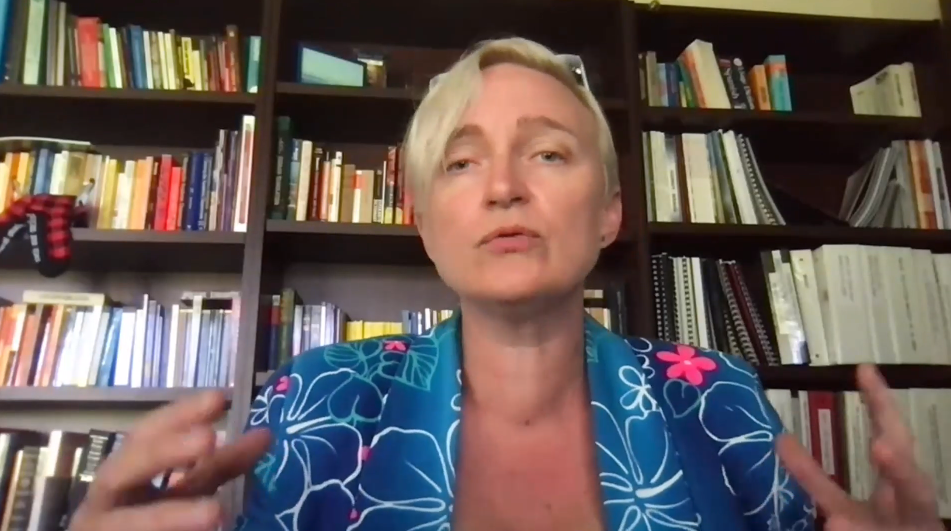
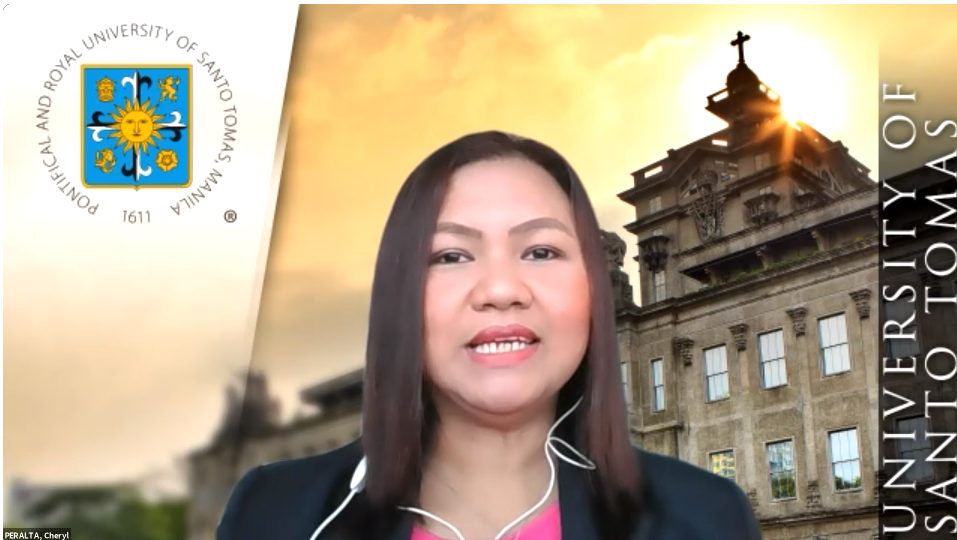
Spearheaded by Department of Filipino, College of Education of the University of Santo Tomas (UST) and the University of Hawai’i at Hilo, United States of America (USA), the three-day conference gathered academics, scholars, and linguists, including curriculum and language policymakers, from various regions of the country, to as far as USA, Canada, United Kingdom, Germany, Saudi Arabia, South Korea, and Japan.
IVCTFSL 2021 formally commenced with the opening message of Vice Chancellor for Academic Affairs Dr. Kris Roney of UH Hilo and Vice Rector for Academic Affairs Prof. Cheryl R. Peralta, DrPH of UST, who both emphasized the value of preserving culture through language instruction. Also, in the conference was Komisyon sa Wikang Filipino (KWF) chair Dr. Arthur P. Casanova, who, in his keynote address, shared his personal experience and knowledge on teaching Filipino as a second language.
Meanwhile, UST College of Education Dean Assoc. Prof. Pilar I. Romero, invited the participants to reflect on and respond to the challenges raised in the conference, as we all speak the same language: the language of solidarity.
University of Hawai’i at Hilo, USA professor and IVCTFSL 2021 overall chair Dr. Rodney C. Jubilado opened the plenary sessions on the Trends, Issues, and Challenges of FSL Overseas with his lecture on “Designing a Filipino Curriculum and Heritage Program” this was followed by University of California, Berkeley, USA lecturer Dr. Maria Josephine Barrios-Leblanc, who talked about “Pedagogical Materials and Textbook Production in Filipino.”
Several plenary and parallel sessions were held during the three-day conference where experts in languages from different local and international universities shared their studies about Filipino as a Second Language (FSL).
Speakers included: UST Center for Translation and Translation Studies Chair Asst. Prof. Wennielyn F. Fajilan, Ph.D., with her lecture “The Teaching of Filipino to Non-Tagalogs,” joined other lecturers, including Dr. Christian George C. Francisco of De La Salle University, Dasmariñas (“Highlighting Filipino Language and Culture: The Experience of Select Academic Institutions in the World”), Dr. Gerard P. Concepcion of the University of the Philippines, Diliman (“Filipino Track Program in Busan University of Foreign Studies: Strengths, Weaknesses, Opportunities, and Threats”), Dr. Shirley N. Dita of DLSU Manila (“Philippine Linguistics: Challenges and Perspectives”), and Dr. José Wendell P. Capili of UP Diliman (Creative Writing in Filipino in the Context of FSL Teaching and Learning”) in discussing their respective studies about the teaching of Filipino.
The parallel sessions showcased an abundance of studies concerning several themes such as: Kurikulum at Pagtuturo ng Filipino Bílang Pangalawa o Banyagang Wika (Curriculum and Instruction of Filipino as a Second or Foreign Language), Mga Tiyak na Estratehiya, Pagtataya at Teknolohiya sa Pagtuturo ng Filipino Bílang Pangalawa o Banyagang Wika (Specific Strategies, Assessments, and Technologies in the Teaching of Filipino as a Second or Foreign Language), at Mga Kagamitang Panturo na Maaaring Ilapat sa Pagtuturo ng Filipino Bílang Pangalawa o Banyagang Wika (Instructional Materials for the Teaching of Filipino as a Second or Foreign Language), Pagpaplano at Patakarang Pangwika sa Filipino (Planning and Language Policy in Filipino), Gramatika, Lingguwistika, Ortograpiya at Onomastikang Filipino (Filipino Grammar, Linguistics, Orthography and Onomastics), and Leksikograpiya at Bokabularyong Filipino (Filipino Lexicography and Vocabulary).
In his final message, Jubilado underscored the conference’s aim to emphatically advocate “for the rethinking of the approaches, pedagogies, strategies, and other processes and aspects related to the Teaching of Filipino as a Second Language (TFSL), for Filipino and non-Filipino students.”




